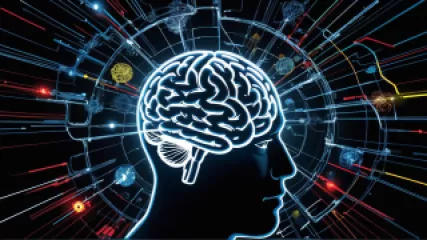Understanding Different Types of Cognitive Distortions
Cognitive distortions are common thinking patterns that can lead to negative emotions and behaviors. These distortions can affect how we perceive ourselves, others, and the world around us. Understanding different types of cognitive distortions is essential for identifying and challenging these unhelpful thought processes. In this research summary, we will explore various cognitive distortion types and their impact on our mental well-being.
1. All-or-Nothing Thinking
All-or-nothing thinking, also known as black-and-white thinking, involves viewing situations in extreme terms without considering any middle ground. People who engage in this type of cognitive distortion see things as either perfect or a complete failure, with no room for shades of gray.
This cognitive distortion can lead to feelings of disappointment, frustration, and self-criticism. It can also hinder problem-solving and decision-making abilities, as individuals may struggle to find balanced solutions that acknowledge the complexities of real-life situations.
2. Overgeneralization
Overgeneralization involves making sweeping generalizations based on limited evidence or a single negative experience. For example, someone who fails a test may start believing that they are not intelligent and will always fail at academic endeavors.
This cognitive distortion can lead to low self-esteem, self-doubt, and a lack of confidence. Overgeneralization can also prevent individuals from taking risks or trying new things, as they may anticipate failure based on past experiences.
3. Mental Filter
The mental filter distortion involves selectively focusing on negative details while disregarding positive aspects of a situation. It's like viewing the world through a negative lens, where only the flaws and shortcomings stand out.
This cognitive distortion can contribute to feelings of sadness, dissatisfaction, and pessimism. It can also skew one's perception of reality, leading to an overall negative outlook on life.
4. Discounting the Positive
Discounting the positive involves downplaying or dismissing positive experiences, accomplishments, or feedback. Individuals who engage in this cognitive distortion may believe that positive events are insignificant or do not reflect their true abilities or worth.
This distortion can lead to feelings of inadequacy, low self-esteem, and a constant sense of striving for unattainable perfection. Discounting the positive can also hinder one's ability to appreciate and celebrate personal achievements.
5. Jumping to Conclusions
Jumping to conclusions involves making assumptions or reaching conclusions without sufficient evidence. This distortion can take two forms: mind-reading and fortune-telling.
Mind-reading occurs when we assume we know what others are thinking or feeling without any concrete evidence. Fortune-telling, on the other hand, involves predicting negative outcomes or catastrophizing future events without considering alternative possibilities.
This cognitive distortion can contribute to anxiety, interpersonal conflicts, and missed opportunities. By jumping to conclusions, individuals may misinterpret others' intentions or make decisions based on unfounded beliefs.
6. Magnification and Minimization
Magnification and minimization involve distorting the significance of events or personal qualities. In magnification, individuals exaggerate the importance or impact of negative experiences or flaws. In minimization, they downplay or ignore positive experiences or strengths.
This cognitive distortion can lead to feelings of worthlessness, self-doubt, and distorted self-perception. Magnification and minimization can also hinder problem-solving abilities, as individuals may focus excessively on negatives or fail to recognize their own capabilities.
7. Emotional Reasoning
Emotional reasoning involves basing judgments and decisions solely on emotions, disregarding objective evidence or logical reasoning. Individuals who engage in this distortion assume that their feelings reflect reality, even when evidence suggests otherwise.
This cognitive distortion can lead to irrational beliefs, impulsive behaviors, and interpersonal conflicts. Emotional reasoning can also hinder problem-solving skills, as individuals may struggle to evaluate situations objectively.
8. Should Statements
Should statements involve rigid rules or expectations about how oneself or others should behave. These statements often come with a sense of moral obligation or duty. For example, "I should always be perfect" or "They should always agree with me."
This cognitive distortion can contribute to feelings of guilt, frustration, and resentment. Should statements can also create unrealistic expectations for oneself and others, leading to disappointment and strained relationships.
9. Personalization
Personalization involves taking responsibility for events or situations that are outside of one's control. Individuals who engage in this cognitive distortion may blame themselves for negative outcomes or assume they are the cause of others' behaviors.
This distortion can lead to excessive self-blame, guilt, and a diminished sense of self-worth. Personalization can also strain relationships, as individuals may feel responsible for others' happiness or actions.
10. Labeling
Labeling involves assigning global, negative labels to oneself or others based on specific behaviors or characteristics. For example, someone who makes a mistake may label themselves as a failure or a loser.
This cognitive distortion can contribute to low self-esteem, self-destructive behaviors, and strained relationships. Labeling can also limit personal growth and self-compassion, as individuals may internalize negative labels and believe they are incapable of change.
Understanding the different types of cognitive distortions is the first step towards challenging and reshaping these unhelpful thinking patterns. By becoming aware of our own cognitive distortions, we can develop strategies to reframe our thoughts, promote more balanced thinking, and enhance our overall well-being.






